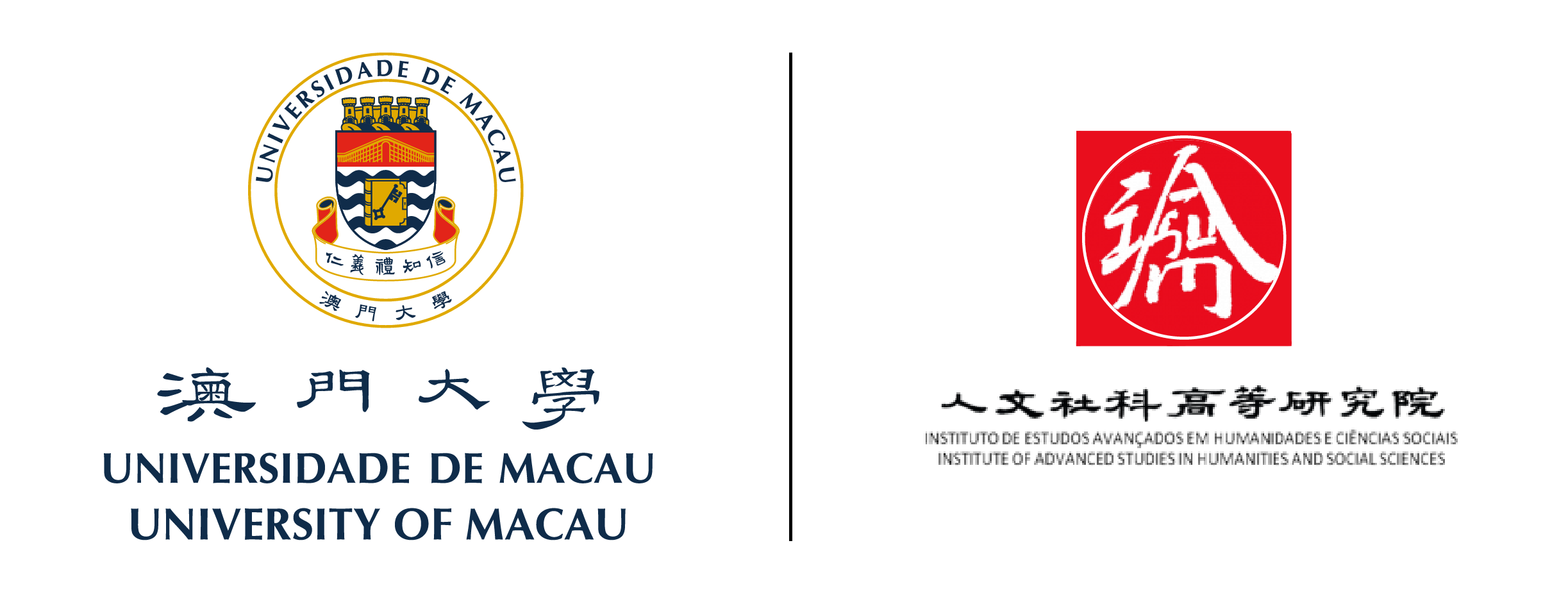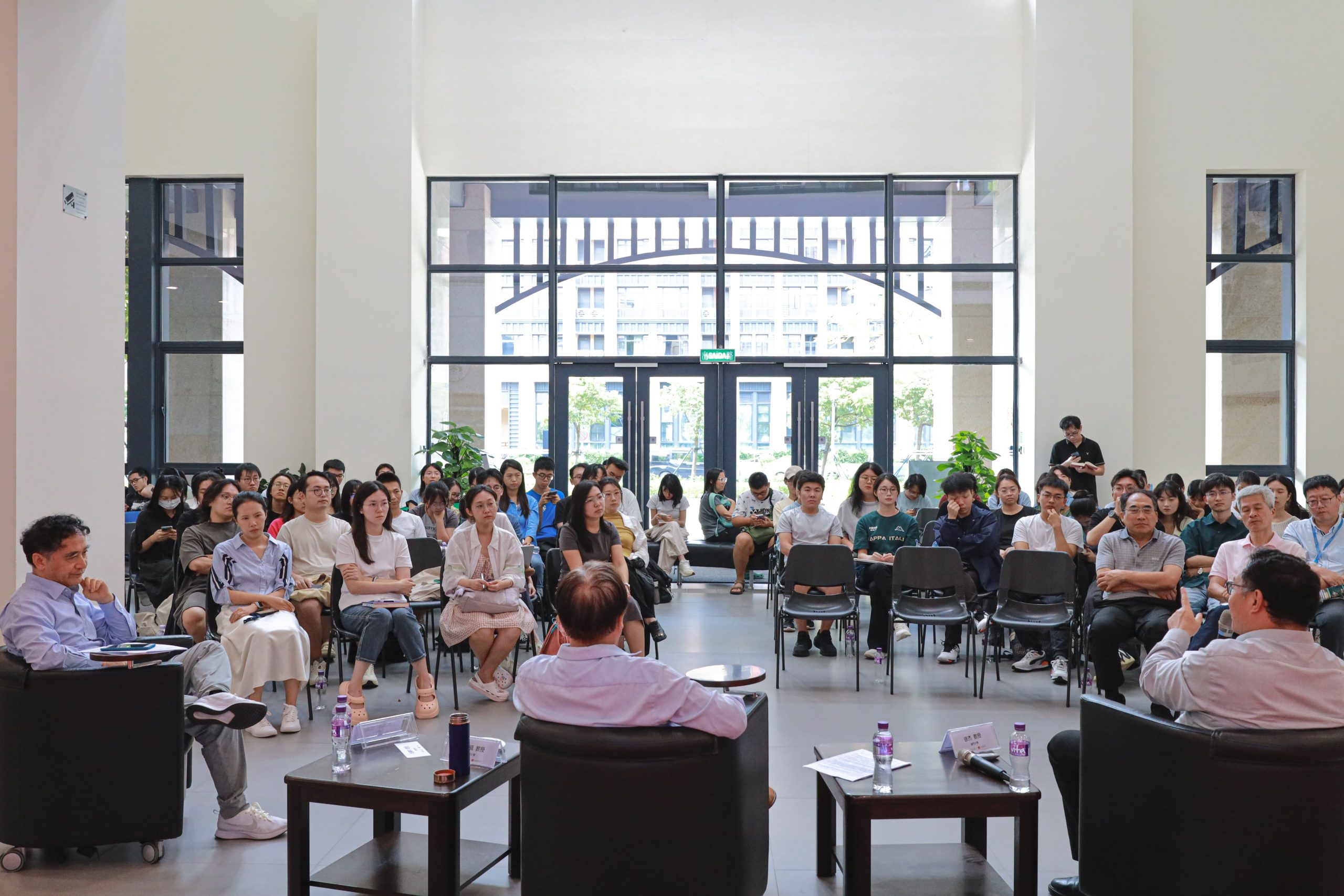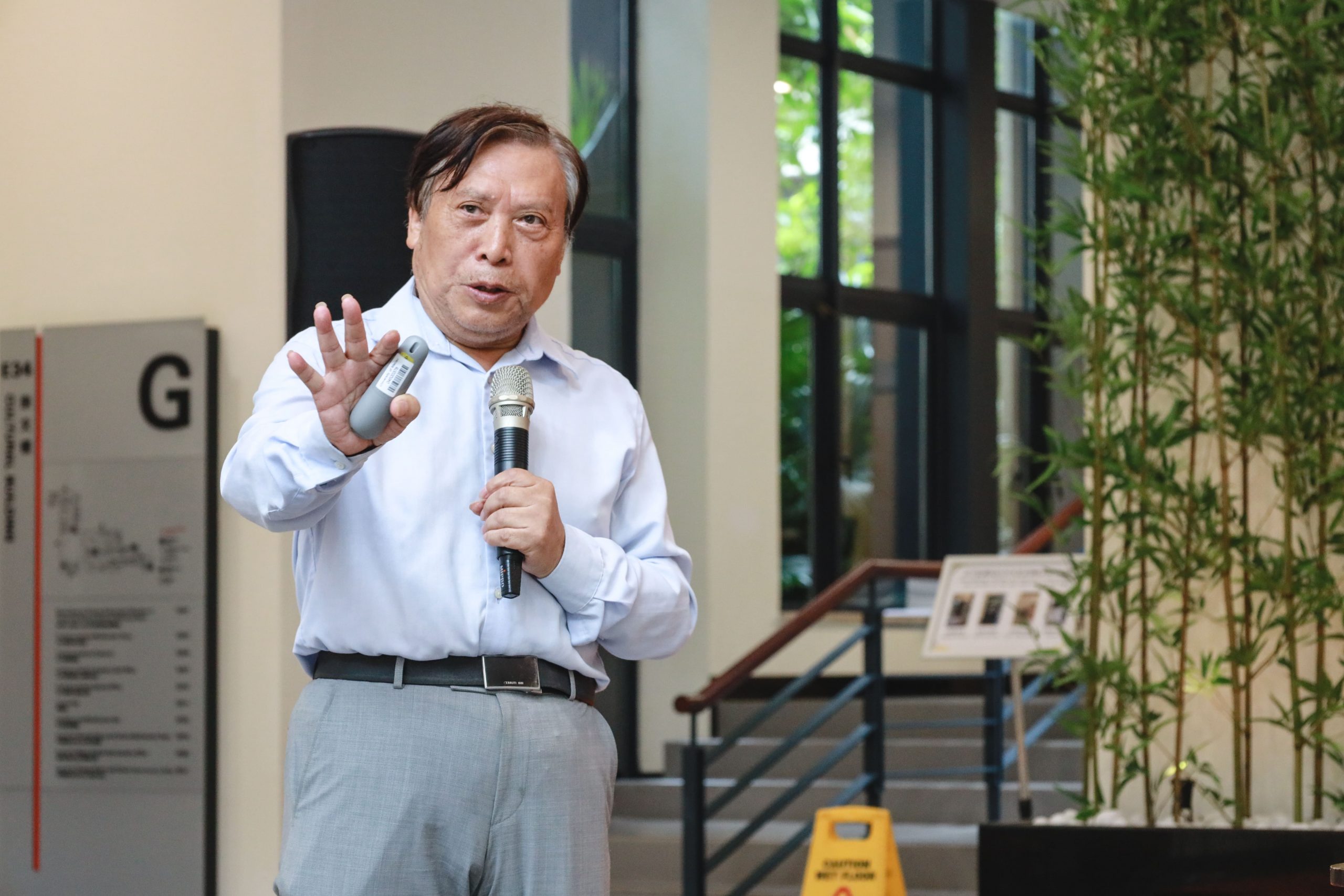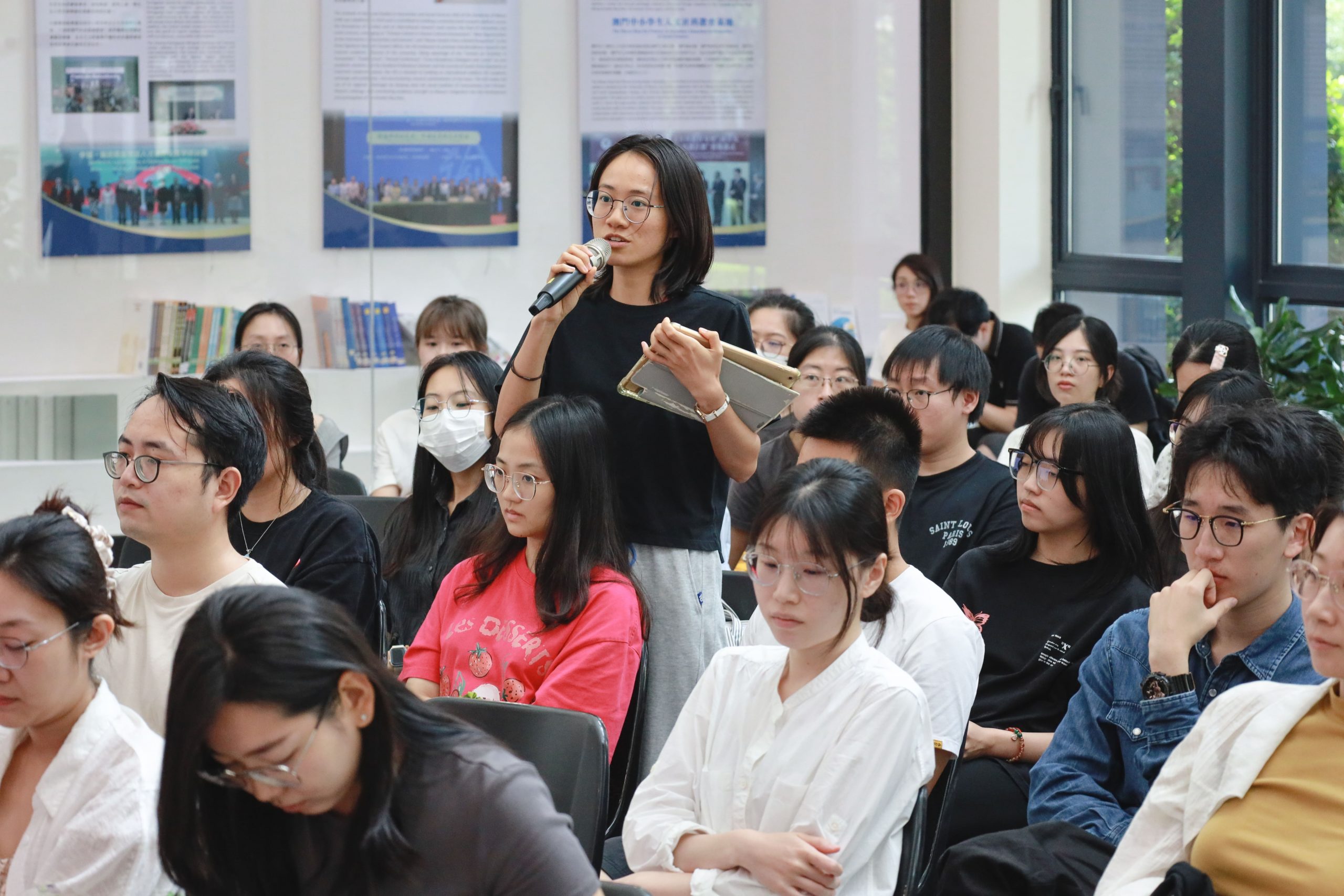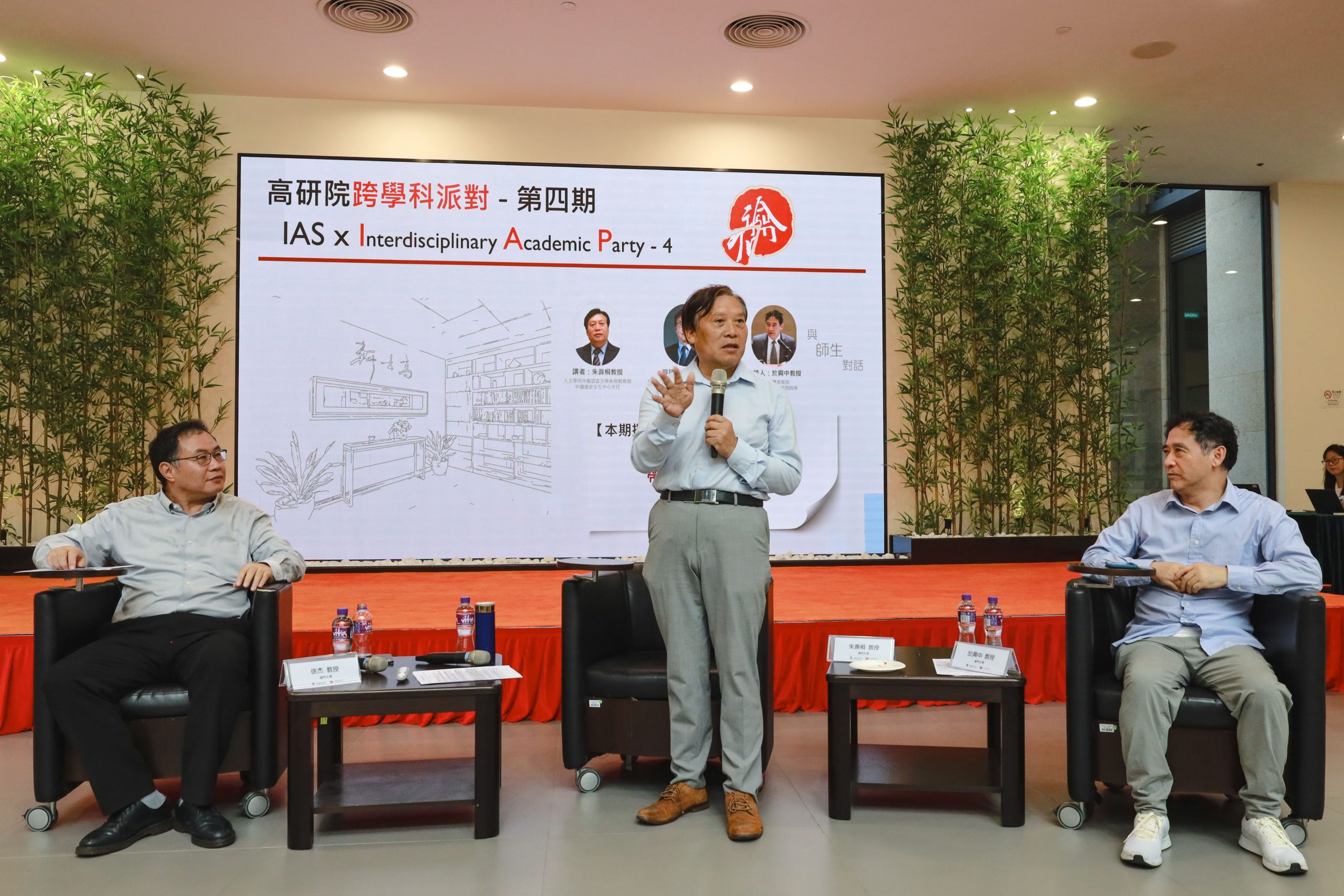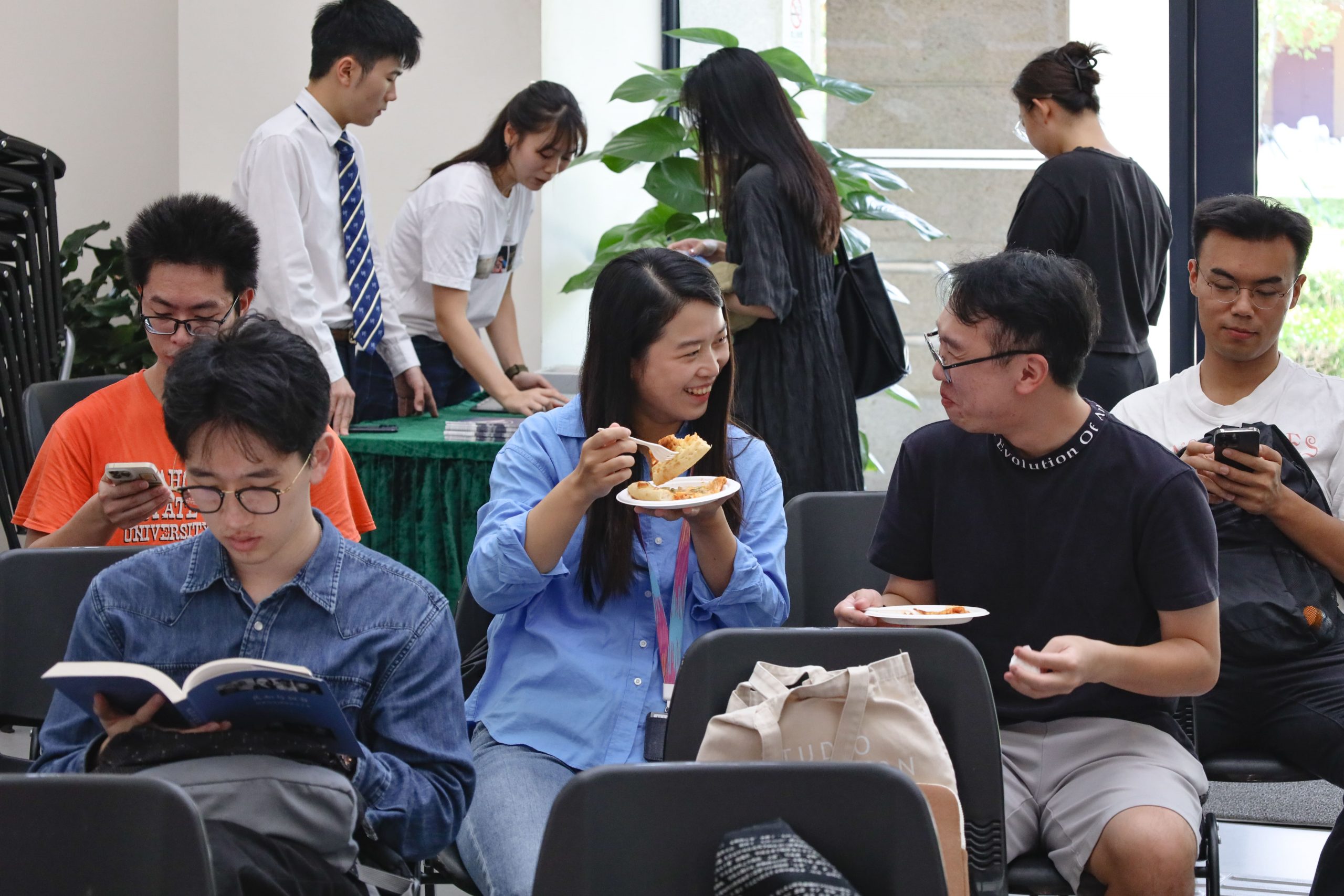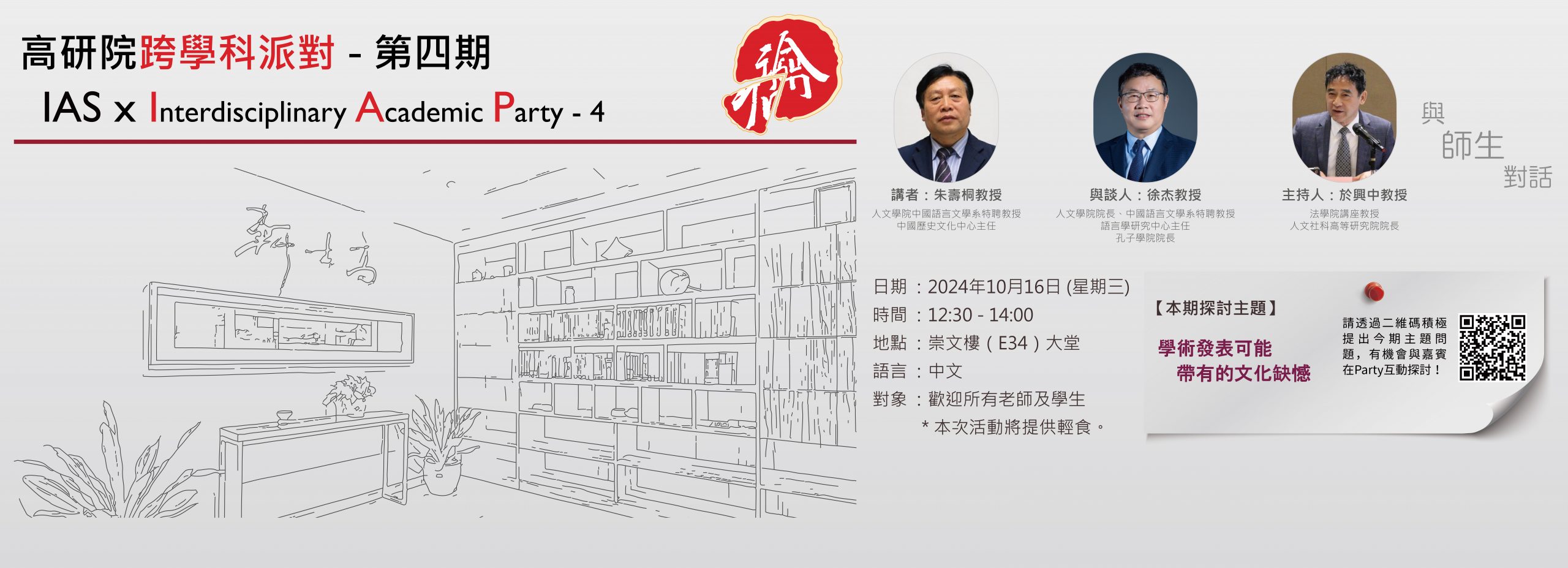
On October 16, the fourth session of the “IAS X Interdisciplinary Academic Party,” organized by the Institute of Advanced Studies in Humanities and Social Sciences (IAS) at the University of Macau, was successfully held in the lobby of the Cultural Building. The theme of this session was ‘Cultural Deficiencies in Academic Publishing,’ featuring Prof. Shoutong Zhu, Distinguished Professor of the Department of Chinese Language and Literature at FAH and Director of the Centre for Chinese History and Culture, as the speaker. Prof. Jie Xu, Dean of FAH, Distinguished Professor of the Department of Chinese Language and Literature, and Director of the Centre for Linguistics and the Confucius Institute, served as the discussant. The event was moderated by Prof. Xingzhong Yu, Chair Professor of the Faculty of Law and Director of IAS.
Prof. Zhu first introduced the “Humanistic Epidemic” concept, pointing out that modern academia often focuses excessively on superficial phenomena, neglecting core values. He emphasized that scholars are responsible for counteracting this trend and avoiding sensationalism in academic publishing. He further stressed that scholars should remain humble and well-prepared in academic conferences to prevent “humanistic flaws” at both the human and academic levels, such as self-aggrandizement or disrespecting the audience. Prof. Zhu asserted that only by maintaining a gentlemanly demeanour can the healthy development of both academics and culture be truly promoted.
Following this, the professors engaged in a thorough discussion on the core of interdisciplinary research, the writing of academic papers, and cultural deficiencies across different disciplines, based on questions collected in advance. Prof. Xu highlighted that interdisciplinary research should be problem-oriented rather than interdisciplinary for its own sake. Scholars should naturally introduce multidisciplinary perspectives based on specific phenomena to achieve collaborative innovation. Prof. Zhu noted that while different disciplines have varying interpretations of cultural deficiencies, scholars, regardless of their field, should maintain a “gentle and modest” attitude to foster a healthy academic environment. The professors collectively agreed that papers should prioritize the reader’s comprehension, and scholars should empathize with their audience to enhance the readability of their work.
In the final Q&A session, participants actively asked questions, engaging in dialogues on topics such as interdisciplinary education and academic rigour. One student raised the issue of the contradiction between the promotion of liberal education at universities and the emphasis on specialization in further studies. The professors responded that interdisciplinary education should be adaptable and not rigid; it should be tailored to individual resources and research needs. The lively interaction between faculty and students created a vibrant and in-depth academic exchange, demonstrating a strong spirit of scholarly engagement.
The IAS Interdisciplinary Academic Party series aims to foster academic interactions among scholars and students, promote interdisciplinary collaboration, and encourage academic innovation and exploration. This session attracted nearly 100 participants from diverse academic backgrounds, creating a lively atmosphere that laid a solid foundation for future academic collaborations and cross-disciplinary exchanges.

